Iran's Hijab Clampdown Draws Condemnation From Jailed Activists

Iran's recent crackdown on hijab rules has sparked outrage and drawn condemnation from women's rights advocates and prominent Iranian figures.

Iran's recent crackdown on hijab rules has sparked outrage and drawn condemnation from women's rights advocates and prominent Iranian figures.
The denouncements follow reports of widespread arrests and police violence throughout the country.
Prominent Iranian scholar and university professor, Sedigheh Vasmaghi, denounced her arrest for defying mandatory hijab laws.
Currently imprisoned in Tehran's Evin Prison, Vasmaghi, in a message dated April 2024, condemned the authorities' actions as "antipatriotic and against national interests."
"Ordering engagement with people, particularly women, for a specific reason like hijab enforcement is not only unpatriotic and unforgivable, but also detrimental to the nation's well-being," Vasmaghi's message from prison reads. "The inevitable consequences of this order will undoubtedly fall on those who issued it and those who carry it out."
Jailed Iranian human rights activist and Nobel laureate, Narges Mohammadi, joined the chorus of condemnation. "Desperate to mask its crumbling legitimacy and failing authority," she asserted from Evin Prison, "the Islamic Republic has transformed the streets into a battleground against women and youth, wielding fear and intimidation as weapons."
Mohammadi further emphasized that the regime's "shameful domestic domination and brute force" are a pathetic attempt to compensate for its "weak and absurd claims" on the world stage. "The ongoing civil disobedience and brave resistance of Iranian women in the streets," she concluded, "have shaken the foundations of the Islamic Republic."
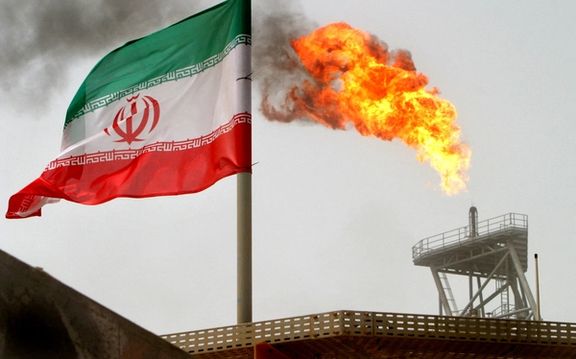
In response to impending US and EU sanctions against Tehran, Tasnim, a news outlet affiliated with the IRGC, asserted that Iran will continue to evade the sanctions.
Following Tehran's attack on Israel over the weekend, sanctions against Iran are expected to be imposed in the coming days.
In a report titled "New sanctions, fake or real?" published on Wednesday, Tasnim stated that the new sanctions on Iran would be ineffective.
"The severity of the sanctions imposed over the years, especially in the last decade, has been at its highest level, and the Iranian economy has learned resilience and methods of circumventing these sanctions well," Tasnim’s report read.
Tasnim itself was sanctioned last year by the US, in connection “with the Iranian regime’s violent suppression of nationwide protests following the death of Mahsa ‘Zhina’ Amini.”
In a response to Iran’s attack, the US House of Representatives passed legislation aimed at countering China’s purchase of Iranian crude oil as part of a package of bills being brought to the floor.
Tasnim’s report claims that the demand for Iranian oil from major manufacturing countries like China acts as a constraint on Washington's ability to enforce new oil sanctions against Iran.
In the past months, Iran has heavily relied on exporting millions of barrels from floating storage to boost its oil exports to Beijing.
Earlier this week, US Treasury Secretary Janet Yellen addressed Iran's ongoing oil exports despite US sanctions, stating that "...there may be more that [the US] can do".
The head of the Iran-Iraq Chamber of Commerce, Yahya Ale Eshaq, told Tasnim that the talk of increased sanctions is more of a psychological game and that given the risk of higher oil prices, "the Americans will not have much power" to impose sanctions.
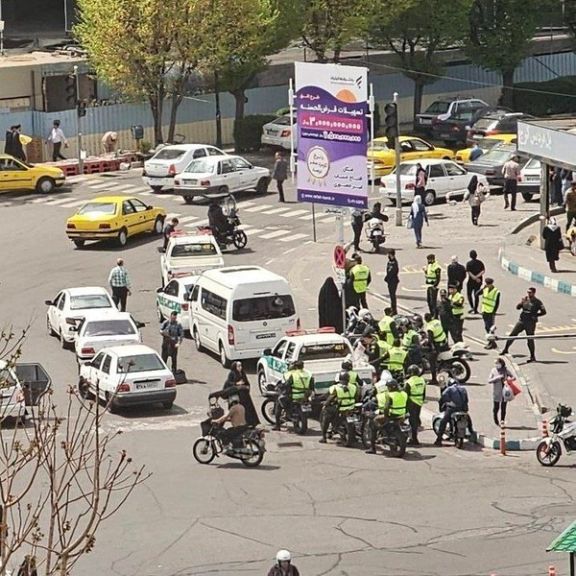
Many believe that the current "state of war" with Israel may provide the Islamic Republic with an opportune window to more effectively deal with its ongoing domestic challenge of quashing dissent.
Some Iranian social media users believe that the authorities’ sudden intensification of the crackdown on women over the mandated hijab could be a deliberate attempt to divert attention from Tehran’s missile attacks on Israel.
Others suggest it may have been aimed at suppressing potential anti-war protests that could overshadow the regime’s claims of victory regarding the "hard revenge" operations planned against the Islamic Republic's archenemy – the "Zionist regime".
Omid Shams, a lawyer and director at the London-based NGO Justice for Iran, however, finds a direct correlation between the new wave of hijab crackdown and foreign conflict.
“There is a historical precedence to this,” he told Iran International, explaining that in the early days of the Islamic Revolution, when war with Iraq began in 1980, Iran's then-ruler Ruhollah Khomeini similarly found the time right to realize his wish to force women into wearing the hijab.
Woman resisting arrest by morality police in Rasht in northern Iran
“In a state of emergency such as war, governments are empowered to act against the civil society and to create an atmosphere of fear to weaken it,” Shams said. “I think Khamenei took advantage of the current circumstances to do something that could have sparked a strong reaction from the public if he had done it in normal circumstances, when the society could focus on the issue and react to it without being distracted by other problems such as this stupidity that is threatening the existence of the country now.”
Hours before Saturday’s IRGC’s missile and drone attack on Israel, Iran’s so-called morality police waged a full-on war against unveiled women. Iranian authorities have also begun a crackdown on media and social media activists.
The police force’s infamous “guidance patrols”, often referred to as the “morality police”, have returned to the streets, Tehran’s metro stations and other cities across the country in full force, to enforce the Islamic dress code.
Woman being dragged by morality police to their van in eastern Tehran
The patrols had largely vanished from the streets after the death of the 22-year-old Mahsa Jina Amini in their custody, which sparked widespread and months-long protests across the country. This year, a UN report found the Iranian authorities responsible for the physical violence in detention that led to Amini’s death.
Since Saturday, the patrols consisting of male and female uniformed police and plainclothes agents, have arrested at least dozens of women violently as videos and reports on social media attest.
On Tuesday Dina Ghalibaf, a 24-year-old post-graduate student of political science and journalist, was arrested at her home in Tehran for describing in a tweet her own recent encounter with the police for hijab.
In her post, Ghalibaf said she was refused entry to the subway because she was unveiled. When she insisted that she had a right to use the metro, she was tasered and violently taken to an office. There, she said, one of the police officers who constantly mocked and insulted women caressed her face tantalizingly, while she was in handcuffs.
To enforce the hijab, some universities now require women to pass through gates equipped with facial recognition technology. They are prevented from entering if their appearance does not comply with the Islamic dress code.
Authorities have also threatened restaurants and all other businesses with closure if they serve unveiled women or offer them services.
Female officers dragging a woman to their van
Iran International has also learned that the intelligence organization of the Islamic Revolutionary Guards (IRGC), known as SAS, has ordered journalists and activists not to post any content critical of the attack on Israel on social media platforms, as this would be considered as “endangering the psychological security of the society”, and to remove anything that has already been posted.
Mahdieh Golrou, a Sweden-based political activist, told Iran International TV that on Saturday the Supreme National Security Council summoned managing directors of newspapers and news websites and told them they were not allowed to criticize the IRGC’s operations against Israel.
According to Golrou, managing directors were also told they would be held responsible and punished if any of their journalists did so privately.
Authorities have accordingly prosecuted several journalists, social media activists and newspapers including prominent reformist columnist Abbas Abdi and the reformist outlet Etemad for criticizing the conflict and escalation or warning about the consequences of a war.
These actions by Iranian authorities suggest a "state of war and a state of emergency pursuant to it," noted an article published by the reformist Jamaran news website on Monday. The statement criticized the government's attempts to curb all criticism and to force individuals and media outlets to parrot the official line on the matter.
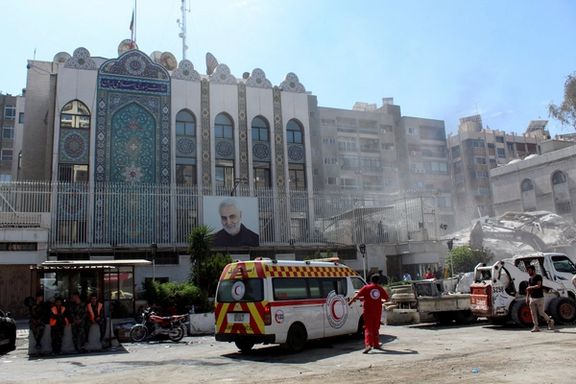
After Iran's missile and drone attack aimed at Israel over the weekend, the country is bracing for possible retaliatory attacks either on its territories or proxies.
This comes after the Iranian government had made preparations to safeguard their assets, which included activating the air force for possible strikes, and deployment of navy escorts for commercial Iranian ships in the Red Sea.
In addition, the Wall Street Journal reports that they are in the process of evacuation at Iranian bases within Syria, especially where the Islamic Revolutionary Guard Corps (IRGC) predominantly resides.
After launching more than 350 drones and missiles, officials in Israel warned of a counter strike without specifying what kind of response is to be expected.
The US, along with European nations, has urged Israel to refrain from retaliation that could escalate tensions further.
German Foreign Minister Annalena Baerbock and Britain’s former Prime Minister David Cameron had separate meetings Wednesday with Israeli Prime Minister Benjamin Netanyahu, in which they echoed a message of de-escalation.
The Biden administration also plans to shore up the diplomatic effort with new economic sanctions on the IRGC and its economic links to Iran's missile and drone programs.
On the military front, it is reported that Iran ordered emergency protocols, especially in Syria, where the IRGC and Hezbollah have adjusted their presence and heightened security measures in anticipation of potential Israeli strikes.
Tehran also indicated that it would respond to any Israeli attack. “The smallest action against Iran’s interests will definitely be met with a severe, extensive and painful response against all its perpetrators,” Iranian President Ebrahim Raisi said.
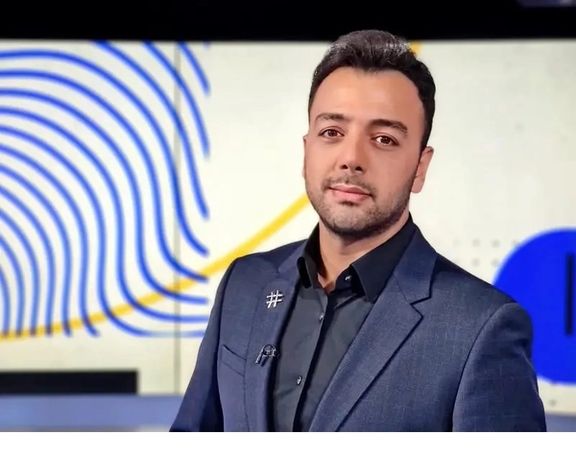
Weeks after Iran International TV host Pouria Zeraati was stabbed in London, Reporters Without Borders (RSF) is urging the UK to step up its protection of Iranian journalists.
In its report released on Wednesday, RSF called on the government to take all necessary measures to ensure the safety of Iranian journalists who are targeted with a “chilling and far-reaching threat” from Iran.
The investigation into the attack on Zeraati is being headed by the Metropolitan Police's Counter Terrorism Command, due to previous threats towards Iran International’s journalists.
In its report, the press freedom watchdog documented a rise of transnational threats faced by Iranian journalists working and living in the UK.
While the report found that Iranian journalists working abroad often face intimidation or harassment, including in the US, France, Germany, Sweden, and the UK, London is considered a "hotspot" for such attacks – given the number of prominent Persian-language broadcasters in the city.
The Iranian government has long threatened Iran International, with several journalists at the network facing imminent threats of attacks in the years 2022 and 2023.
The news network's offices were temporarily relocated from London to Washington last year after threats escalated to a level that domestic security services could no longer guarantee the safety of the staff.
According to the RSF report, almost 90% of Iranian journalists surveyed had experienced online threats or harassment in the past five years, including death and rape threats.
Families of journalists also routinely faced threats from Iranian authorities.
Approximately 60% of respondents in the report said that their families had been threatened, including being called in for interrogations, applying economic penalties, such as asset freezes or job losses, removing passports, travel bans, surveillance, tapping phone calls, and detentions.
The report also revealed that there are deficiencies in the support provided to journalists by law enforcement and social media platforms, partly because their plight is perceived as a “foreign priority, rather than domestic.”
The majority of journalists said they had negative experiences when they reported attacks to police, who did not understand the context or gravity of the threats they faced.
Only 13% of respondents reported abuse to the police over the past five years, with many considering it “a waste of time”.
Although online threats and harassment are high, journalists who report online abuse have overwhelmingly negative responses.
According to many respondents, complaints made to social media platforms were ignored or dealt with unsatisfactorily.
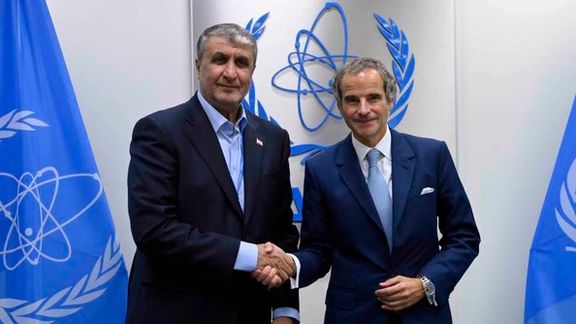
The head of Iran's Atomic Energy Organization, Mohammad Eslami, said on Wednesday that the International Atomic Energy Agency monitoring is in place and UN nuclear chief Rafael Grossi will soon visit Iran.
Mohammed Eslami did not specify a date for Grossi's visit in his comments. However, based on his previous remarks, the date might be as soon as early May. In February, Eslami announced that Grossi would attend the first international nuclear energy conference in Isfahan, coinciding with the 50th anniversary of establishing the Atomic Energy Organization of Iran.
However, Iran’s nuclear chief did not mention the closure of the nuclear facilities for 24 hours on Sunday in the wake of Iran's aerial bombardment which saw 350 plus missiles and drones launched towards Israel.
The IAEA director said on Monday that Iran closed its nuclear facilities on Sunday due to threats of an Israeli attack, fearing retaliation to the bombardment which saw forces from the UK, US, Jordan and France work to intercept the majority of the projectiles before they reached Israeli territory. While they reopened on Monday, Grossi said he would keep IAEA inspectors away until the situation calmed down.
As Israel considers whether to launch a counterattack, there has been speculation that some nuclear-related sites may be targeted. In response to a question regarding the possibility of Israel striking Iran's nuclear sites, Grossi replied on Monday, “We are always concerned about this possibility.”
Eslami also downplayed the tension by claiming that cameras are installed and "constantly monitor" the nuclear facilities and that inspectors also visit them regularly.
Iran said the attack on Saturday was an action of self-defense in retaliation for an alleged Israeli strike on its consulate in Damascus on April 1. It was the first direct action initiated inside Iran against Israel and began a new chapter in the conflict between the two countries previously engaged in a years-long shadow war.






